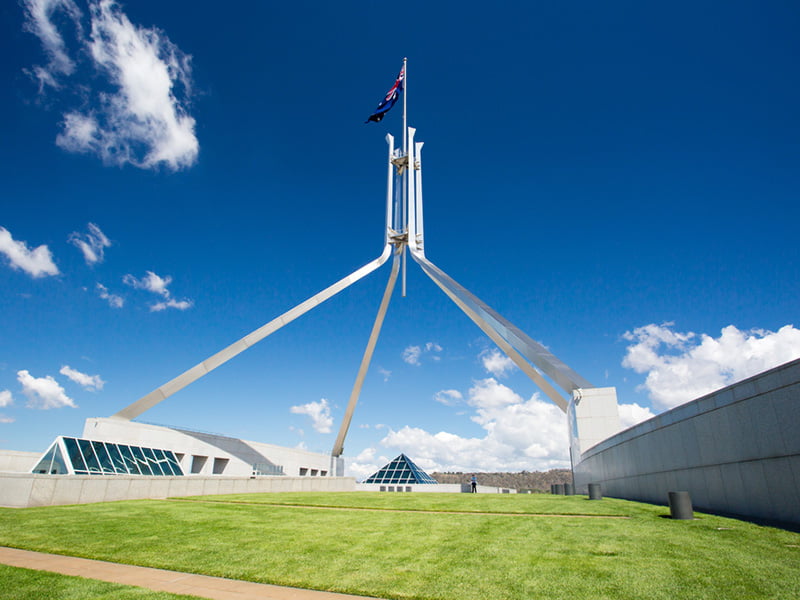The federal government’s troubled digital identity project has been handed a further $6 million, as concerns about spiralling costs and delays continue.
Treasurer Josh Frydenberg released the Mid-Year Economic and Fiscal Outlook on Monday, with a number of new announcements surrounding the government’s tech and digital transformation efforts.
The report revealed that the Digital Transformation Agency would be given another $5.9 million for its digital identity program, GovPass, on top of the $67 million it provided in the 2019-20 budget.

The government has now thrown $150 million at the project, which aims to create a whole-of-government way of verifying identity across a range of government and private sector services.
The government is pursuing a federated model, with two accredited government-owned identity services – from the ATO and Australia Post – to eventually compete with a range of private sector offerings and state and territory governments.
The project was launched in 2015 but has been plagued with cost blowouts and ongoing delays, with calls within the identity sector for a full-scale review of the scheme and legislated privacy safeguards.
In MYEFO, the Coalition provided little further detail on what the additional $5.9 million would be used for, although there has been a push this year for the private sector to get on board and start developing its own services to be incorporated with GovPass.
The DTA is consulting on opening up the Trusted Digital Identity Framework – a set of standards and rules used to accredit digital identity providers – to the private sector, and will need to introduce legislation to Parliament to do so.
DTA officials recently defended the digital identity project at a Senate Estimates hearing, denying it will be a repeat of the doomed Australia Card and claiming that it will be “privacy enhancing”.
As of October, the ATO’s myGovID digital identity play had been downloaded more than 80,000 times, with 46,000 identities created.
The project has also been criticised for a lack of transparency and public awareness of what is going on.
The head of the Australian Strategic Policy Institute’s International Cyber Policy Centre Fergus Hanson said the government is bungling what is a hugely significant initiative.
“If it was done properly, then it would be one of the biggest micro-economic reforms we’ve had for a very long time,” Mr Hanson told InnovationAus earlier this year.
“It’s a really useful reform if done really well, but unfortunately we’re doing the opposite.”
A number of industry insiders have also raised concerns with how the government is going about the digital identity project, with a reliance on building new solutions rather than purchasing off-the-shelf technology leading to increased costs and delays.
“This is a growing waste of taxpayers’ dollars, when connecting in private sector solutions can support what agencies want,” one industry insider told InnovationAus.
“It’s taking a lot longer than comparable programs in the private sector. The general feeling is that things aren’t moving quickly enough.
“It’s right up there with programs that are generally described as being out of control. We really have to look at what’s been delivered.”
As part of the MYEFO update, the DTA was also given more than $19 million over two years for the development of the protected utility platform and the implementation of a hosting strategy.
Do you know more? Contact James Riley via Email.


This ATO authentication & identification service is based on discredited out of date technology that is easily phished. Using peoples’ personal information in either authentication or identification processes online leaves them open to identity theft. In forcing virtually the entire population, business and the professions in Australia to use this outdated legacy technology the ATO is recklessly exposing the public to identity theft, fraud and espionage on an industrial scale. It is a national disgrace. It is reckless of the Government to be exposing the public to these risks when there is alternative Australian designed technology available to avoid this occurring. You can view a short video in which I explain the issues with legacy authentication in simple terms and how it can be fixed at https://www.amorlog.com There is no need to require users to rely on expensive limited devices using the software of American multinationals that refuse to pay fair rates of tax in our Country. Devices that can be lost, stolen, broken, become obsolete, corrupted, imitated or hacked. Every time this happens a practices’ clients will be at risk and the ATO is seeking to hold practitioners responsible for these weaknesses with ridiculous astonishingly negligent claims of how we should protect ourselves against cyber attacks when all along it has been their defective authentication that is creating the problems. When is the Government going to direct the funding where it is needed and stop strangling small firms like ours that have the solutions. The ATO is our competitor and has taken deliberate steps over 10 years to prevent our solution from being made available and continues to waste millions of dollars on failed and discredited technologies. There needs to be an urgent Parliamentary enquiry into these matters in the National Interest.
Hey Louis, what planet are you from ??? The government supports small business, supports Australian start-ups, supports innovation, is making it easier for SMEs to do business with government, says that small business is the backbone of the economy, says its first job is to protect Australians and has it’s best and brightest on cyber stuff. And Santa will come down your chimney with a sack of toys next Tuesday nite. @digikoolaid